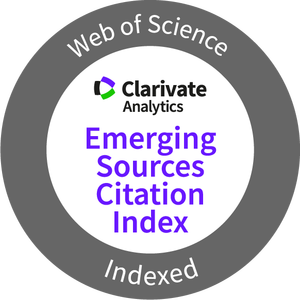Peer Review Process in JOSI
Journal of Organisational Studies and Innovation take the peer review process seriously as it is to ensure that the highest quality research paper is published in the Journal of Organisational Studies and Innovation. All paper reviewed and screened by editors to make sure the quality of the paper is acceptable by JOSI and then will be allocated to a minimum of two reviewers. The reviewers of the JOSI play a key role in establishing and enforcing the high standards of the Journal of Organisational Studies and Innovation. All manuscripts submitted to JOSI are subjected to double-blind peer-reviewed.
Initial Manuscript Evaluation
When a paper is submitted to JOSI through our online system, the editor-in-chief first evaluates the paper to make sure the quality of the paper is acceptable and in the level of JOSI. Papers will be rejected in this stage if the editor in chief not convinced about the originality of the research, or there are some serious scientific flaws in terms of the topics, research question(s) and hypotheses, problem statement, data collection, data analysis, and discussion. Also, papers will be rejected if there is concern about language used in the paper in terms of structure, jargon, and genre, or are not in the scope of the Journal of Organisational Studies and Innovation. Corresponding Authors of manuscripts submitted and desk-rejected will be informed within 2 weeks of receipt.
In the next stage, an associate editor will be allocated to the article to handle the manuscript. Then manuscripts that meet the minimum criteria will be sent for double-blind review by a minimum 2 reviewers and experts in the field of Business and Management.
Double-Blind Review
Our reviewers are expert in their field and have been chosen carefully by editors. In JOSI we request our reviewers to evaluate the manuscript based on some major criteria including 1- whether the manuscript is original research, 2- if the paper methodologically sound and robust, 3- whether the paper covers the most relevant literature review, 4- if the paper has a section on results and if the results are clearly and concisely presented, 5- if the paper has an elaborated discussion based on the research questions and hypotheses, 6- finally, if the paper provides both theoretical and practical implications as well as suggestions for future research. This stage of review takes 6-8 weeks.
Reviewers are asked to provide their comments based on the following criteria:
1- Overall quality of the paper including scientific originality, and Significance for theory and practice
2- Clear definition and explanation of the research questions aim and objectives
3- Critical literature review with recent citations
4- If there is a Theoretical Framework and Conceptual Rationale, strong support for hypotheses
5- Methodology, Research design and data collection procedure
6- Results and Data analysis
7- Clarity of the results and appropriateness of the interpretations
8- Harvard referencing system and language
Editor’s Decision is Final
After receiving reviewers comments the final decision lies with the editor-in-chief to either accept, minor revision, major revision or reject the manuscript.

